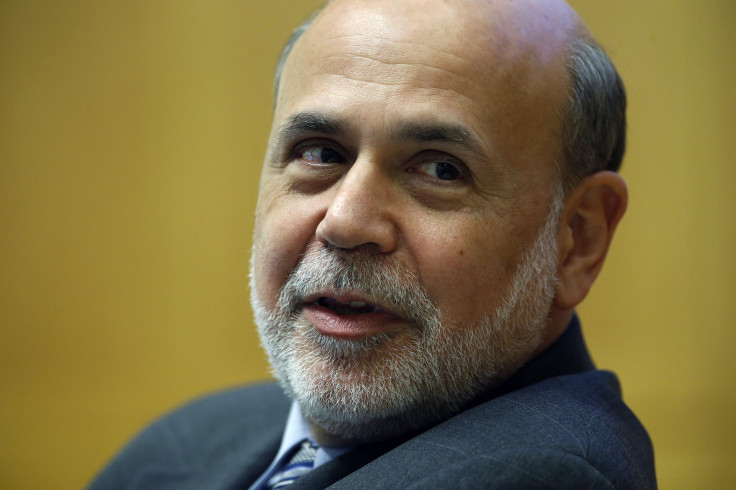Trump Tax Cut 2017: Former Fed Chair Bernanke Rejects President's Plan

Former U.S. Federal Reserve Chairman Ben Bernanke suggested Sunday an income tax cut to get the economy moving is unnecessary, and the country would be better off with infrastructure spending and tax reform.
“I think that it is important, as I mentioned, even though the recovery is proceeding, the underlying growth path is not very strong. Productivity gains have not been very strong,” Bernanke told CNN.
Read: Vice President Mike Pence Admits Reducing Rates Will Swell Budget Hole
President Donald Trump has proposed a massive tax cut that would lower the corporate rate to 15 percent from 35 percent, reduce the number of individual tax brackets, and eliminate the alternative minimum tax as well as the inheritance tax, subscribing to the discredited theory that tax cuts for the rich trickle down through the economy.
“What we want to do is try to improve the supply side of the economy, make it grow faster, have greater potential,” said Bernanke, who chaired the Fed during the Great Recession and slashed interest rates to zero in 2008 to help restore the economy.
“And I think that probably that to do that, I would think that on the fiscal side, that infrastructure spending that improves our roads, our bridges, our schools, and tax reform, not necessarily tax cuts, but reform that makes the system simpler, more efficient, those would probably be the highest-return fiscal actions in terms of getting higher growth,” he continued.
“If I have to increase the deficit, I think I'd rather do it on infrastructure and maybe tax reform.”
Read: Does Trump Tax Reform Have A Chance In 2017?
Trump pushed his plan Friday, saying it would “usher in a new era of prosperity” and hope to communities “that need it most.”
<iframe width="560" height="315" src="https://www.youtube.com/embed/BrCl3pb7F5I" frameborder="0" allowfullscreen></iframe>
"We want to turn our country into a jobs machine — a jobs magnet, something that really works again. We want America to be the best place in the world to hire, grow, invest and start a brand-new, beautiful business," Trump said.
Trump said his plan would help the middle class, simplify the tax code and end many special interest tax breaks.
Alan Cole, an economist with the right-leaning Tax Foundation, told Bloomberg last week a tax cut cannot pay for itself and Trump’s will generate massive deficits.
“There has to be a strong mix of tax cuts and revenue-raisers — a good mix of both candies and vegetables. Right now I see things as a little short on vegetables,” Cole said.
Kansas adopted Trump’s approach to taxes years ago, and it has failed to pay off in jobs or state revenue.
In Sweden, they took the opposite approach. Swedish Finance Minister Magdalena Andersson notes the country has been raising taxes and increasing spending on social programs since 2014. The result has been an economic boon that pushed gross domestic product to 4 percent last year, Bloomberg reported.
Andersson said health care and education, regardless of wealth, are the keys to a successful economy, noting income redistribution can render populist movements ineffective.
The Organization for Economic Cooperation and Development puts Sweden’s tax revenue among the highest in the world at 43 percent of GDP. The U.S. rate is 26 percent.
Sweden also has the highest labor force participation in the European Union, which Andersson attributes to generous parental leave policies and affordable day care. And unlike its European Union peers, Stockholm runs a budget surplus.
© Copyright IBTimes 2024. All rights reserved.












